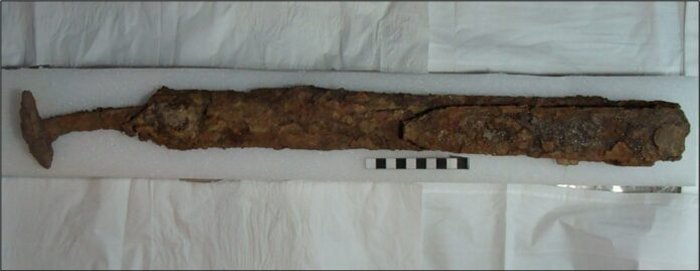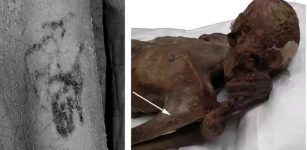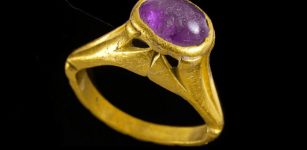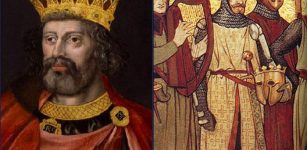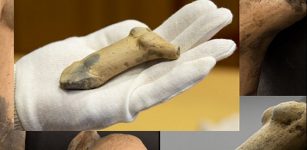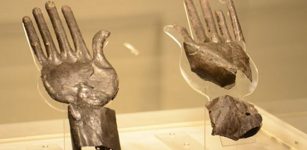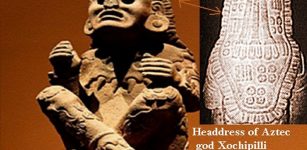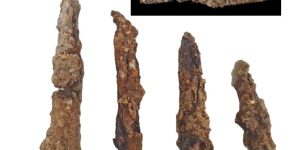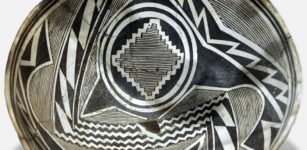Gothic Warrior With Rare Sword Unearthed In Thessaloniki, Greece
Jan Bartek - AncientPages.com - Thessaloniki, the second-largest city in Greece got its name from the half-sister of Alexander the Great who was married to King Cassander.
Thessaloniki which means the "victory of the Thessalians" in Greek was founded by King Cassander in 315 B.C. it’s a beautiful city rich in ancient history and culture.
The Gothic warrior was found in one of these graves. Credit: Errico Maniotis
Archaeologists report they have made a fascinating discovery while excavating a graveyard next to the remnants of a three-aisled cemetery Basilica. The early Christian basilica is occupied by a cluster of tombs, most of which are vaulted. It is in one of them, archaeologists found the skeleton of a Gothic warrior and his weapons. The best preserved of these is a sword that was bent rather than broken.
Based on the examination of the long-deceased warrior and his sword, scientists estimate the finds must be dated to the beginning of the 5th century A.D. According to archaeologist Melina Paisidou the fact that "the sword was deliberately folded, not broken" can "unlock" the identity of the warrior”.
Paisidou and Ph.D. candidate Errico Maniotis emphasize that the most significant part and the rarity of this archaeological discovery “is that there is this series of vaulted tombs inside a temple, ie that this Basilica was built in such a way that they included, so they were important people who belonged to the Christian religion. A special honor was also the fact that this warrior was buried with his weapons,” Athina 984 reports.
Some of the warrior's weapons. Credit: Errico Maniotis
"It is rare for weapons of this period to be found in excavation contexts, even in Greece. "Most of the corresponding findings we have are from Balkan and Western European countries," explains Ms. Paisidou. It is probable that he was a gothic soldier, as Byzantium employed gothic mercenaries especially in the last decades of the 4th century onwards. They were experienced warriors and had a reputation for being good warriors. To this conclusion leads the type of armament found next to the soldier, as well as the folded sword, two elements that according to the archaeologist we knew until now only from Western Europe.
"In Thessaloniki and in wider Macedonia, this sword diploma is encountered for the first time", emphasizes Ms. Paisidou.
This unique archaeological find can shed more light on the history and identity of the Goths.
“Some argue that the Goths originated in Scandinavia. Others claim the Goths were from Poland or some Germanic heritage. Herodotus made a connection between the Goths and the Scythians, but that identification may or may not be valid.
The bent sword belonging to the Gothic warrior was still in good condition. Credit: Errico Maniotis
Most of the Goth’s fame came after they started battling with the Romans. Not much is known about them prior to those conflicts. Their own runic language has few extant examples thus a complete history of the Goths is unobtainable.
See also: More Archaeology News
Like the Persians before them, the Goths attacked Greece in the 3rd Century AD at the pass of Thermopylae but the outcome is not known. The recorded text ends before the victor could be identified. Decius, a Roman Emperor, suffered the loss of men and territory in the Greek wars with the Goths.” 1
Written by Jan Bartek - AncientPages.com Staff Writer
Expand for references


